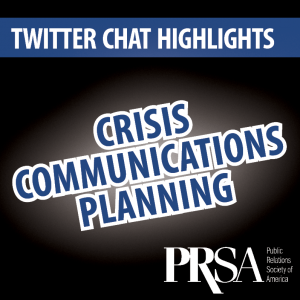Crises have never been as transparent and ubiquitous as in this millennium. It requires a skilled person to manage information during a crisis, as well as to predict and plan for a future one. Within three months of my internship with The Sheldon Concert Hall & Art Galleries located in St. Louis, I created a crisis communications plan that has since been implemented throughout the organization.
If you find yourself working for an organization that does not yet have a crisis communication plan in place, consider being the person who develops one. Doing so is a definite challenge, but it brings with it several specific rewards – such as
- Gain access to people at all levels and functions within the organization.
When I was tasked with developing this plan, I began by generating a list of potential threats. I formed this list by talking to everyone throughout the organization, which was a great excuse to formally meet all the staff and interact with them on a personal level. From the janitor to the CEO, each will have a unique perspective and invaluable input that can change the course of a company in crisis.
- Put yourself in a role that lets you educate employees and advance the company’s best interests.
One of the biggest challenges faced by public relations professionals is validating our projects and efforts. This is as true as ever in crisis communications (at least, until a crisis happens); employees may not understand why a crisis communication plan is important, and this will be your first hurdle in creating one that’s effective. You must be able to explain three things: why communication is important, the difference between the court of law and the court of public opinion, and how having a solid crisis communication plan in place will affect an organization’s bottom line. Once you get everyone on the same page, you’ll be in a position to move the company forward and gain genuine respect.
- Be a change agent who strengthens the organization in a visible and concrete way.
No one wants to admit that there are weaknesses in their organization, and they most certainly do not want to discuss them. However, weaknesses exist in every organization and cannot be ignored. Talking to colleagues throughout the organization showed me that most had never thought about that “worst case scenario” in their respective functions. They expressed concern because there were potential incidents that they felt unprepared to handle. These are the things you must uncover and address in your plan, in order to strengthen the organization in a real and effective way that’s felt by employees at all levels and in all areas.
- Learn to plan ahead and gain a crisis-ready mindset.
Crisis happens quickly and never as anticipated. When writing a crisis plan, you have a unique opportunity to visualize what the day of a crisis will be like. What are you most likely to overlook? What do you need to do so you gain a comfortable level of control? What will be the most stressful part of a specific crisis? What will be your first reaction? These questions are just the start of what it takes to really focus in on a crisis situation. Without ever being in a crisis, writing a plan and practicing it is the closest you will ever be to the real thing.
- Add a unique and desirable skill set to your resume.
Get those hands dirty! While this tip may be worn out, it is something worth repeating. You have to make sure to challenge yourself during your internships and jobs. It teaches you a great deal about yourself and especially about your capabilities. Building a crisis communication plan will help you to develop a skill set that not everyone in public relations has, and it will teach you things that will undoubtedly come in handy down the road.
No matter the reason for your interest in crisis communication, remember that you have chosen one of the most intense aspects of our profession. Do not be nervous; embrace the challenge and make the most out of it. Accepting this challenge gave me irreplaceable experience and helped me become invaluable to my organization. Next challenge, please!
 Robert Fischer was adopted from Guatemala, raised in St. Louis and now resides in Los Angeles. With a passion for localized talent, he graduated with a degree in public relations at the University of Central Missouri. He works in the music industry, representing local bands, and hopes to expand to entertainment and fashion clients. Find out more about Robert by visiting http://simplyemerge.com.
Robert Fischer was adopted from Guatemala, raised in St. Louis and now resides in Los Angeles. With a passion for localized talent, he graduated with a degree in public relations at the University of Central Missouri. He works in the music industry, representing local bands, and hopes to expand to entertainment and fashion clients. Find out more about Robert by visiting http://simplyemerge.com.
 Specifically, we’d like to thank Valerie Merahn Simon, senior marketing executive and Director of Marketing Communications for Plymouth Rock Assurance. She is also the co-founder of the #HAPPO and #PRStudChat Twitter chats.
Specifically, we’d like to thank Valerie Merahn Simon, senior marketing executive and Director of Marketing Communications for Plymouth Rock Assurance. She is also the co-founder of the #HAPPO and #PRStudChat Twitter chats.

